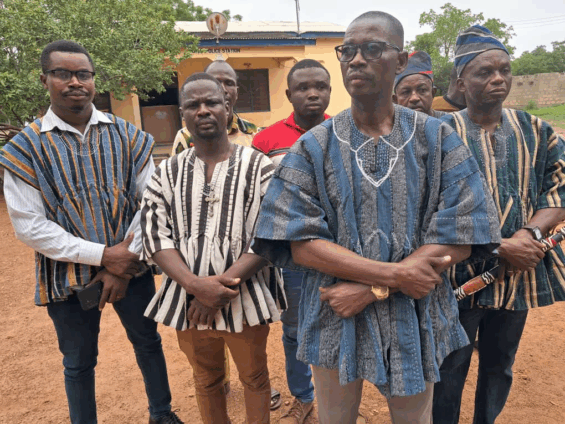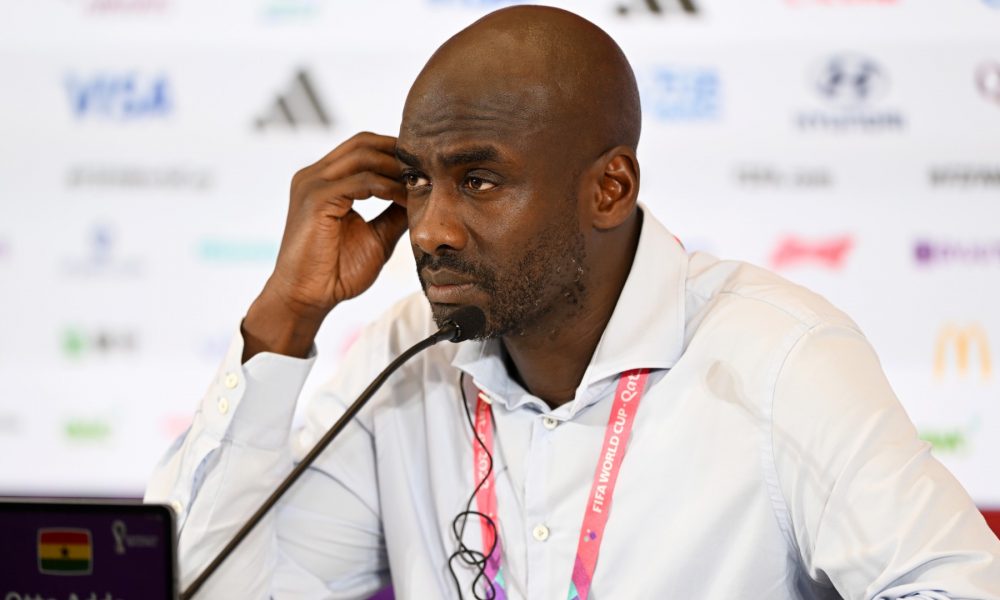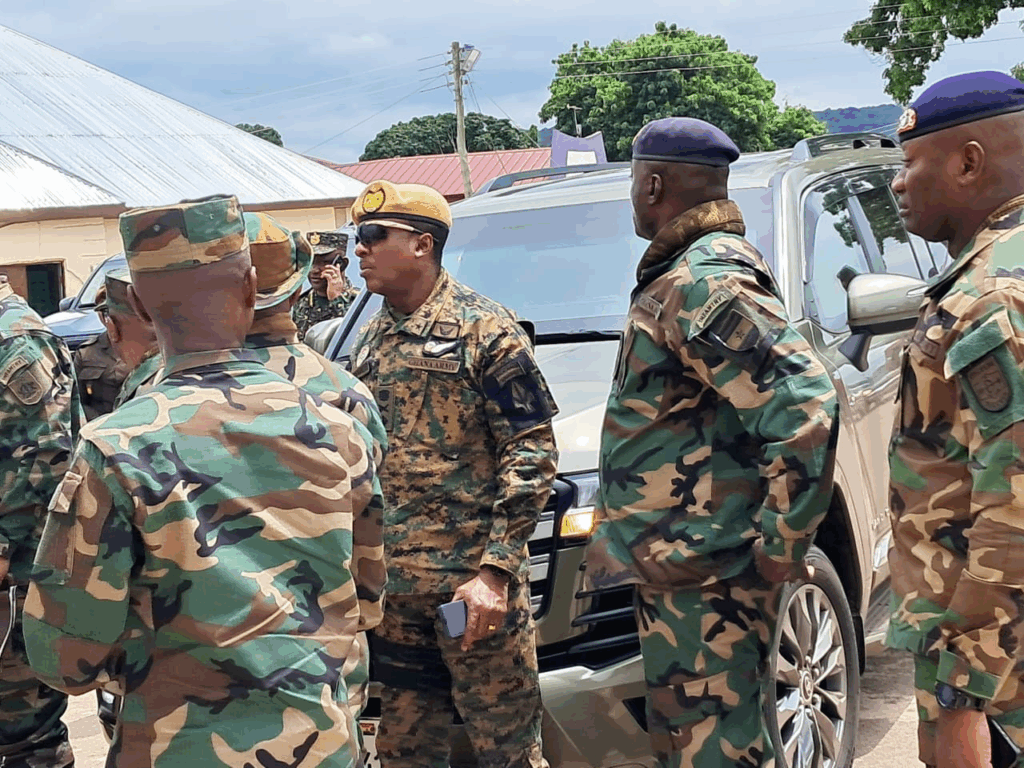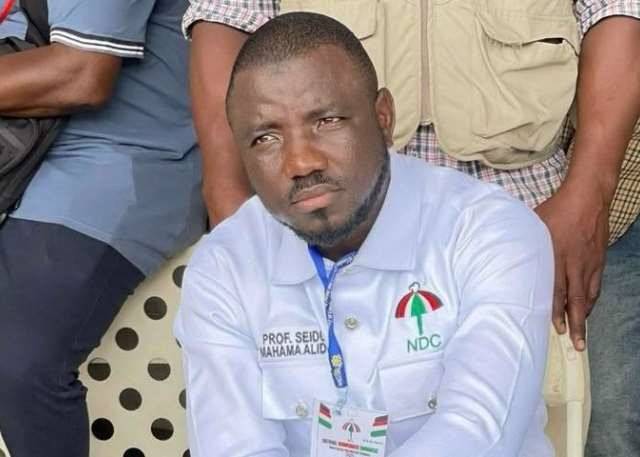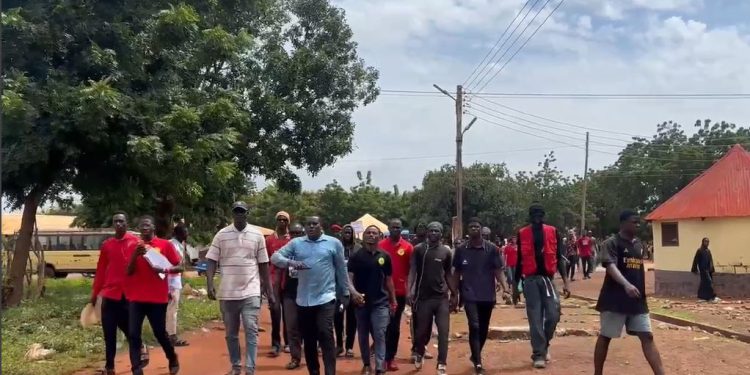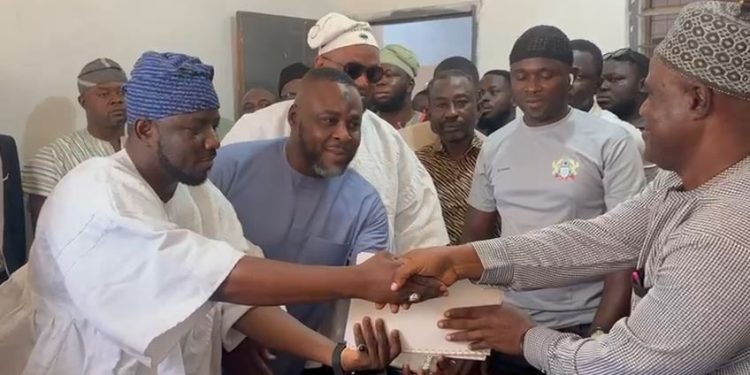Amid a growing humanitarian crisis in northern Ghana, Member of Parliament Peter Lanchene Toobu has called on rival factions in the Gbenyiri conflict to lay down their arms, warning that poverty and underdevelopment—not one another—are their true adversaries.
Mr.Toobu, who serves as Deputy Chairman of the Defence and Interior Committee in Ghana’s Parliament, addressed a crowd of approximately 48,000 internally displaced persons, many of them women and children, in the conflict-ravaged Sawla-Tuna-Kalba District. The MP’s remarks underscored the economic and social toll of the ongoing violence, which has forced families off their land and into temporary shelters.
“War is not the answer. It is destructive and only deepens our collective suffering,” Toobu said. “Your real enemies are poverty, bad roads, and underdevelopment. Not each other.”
The lawmaker’s appeal comes as tensions between local factions continue to disrupt agriculture in the region, with previously cultivated farmlands now abandoned. Crops such as maize and groundnuts—staples of the local economy—remain untended amid the unrest.
Toobu urged traditional leaders to take an active role in brokering peace, revealing that local chiefs had expressed a willingness to pursue reconciliation. “Peace in Sawla-Tuna-Kalba is what we are all praying for,” he said. “And the chiefs have assured us they are ready to take that path.”
He also issued a pointed warning to the region’s youth, cautioning against the misuse of social media platforms to escalate tensions. “If you have sons and daughters who are educated and active on social media, tell them to use that influence to call for peace—not to stoke the flames of conflict,” Toobu said.
Accompanied by regional figures including Naa Maxwell Kuubasagra, the Dagaaba Chief of the Savannah Region, and executives from the Dagaaba Youth Association, Toobu emphasized that the window for resolution is narrowing.
“This cannot be life—being fed by others while your own farms are left behind,” he said. “We must act now. Peace is not just a slogan. It is an urgent necessity—for our children, our mothers, and our future.”
The conflict in Gbenyiri, though localized, highlights broader challenges across Ghana’s rural north, where poor infrastructure and limited economic opportunity continue to fuel unrest. National authorities have yet to announce a comprehensive plan for long-term stability in the area.



